The content of the article
Vitamin D refers to the classification of a large group of biological substances that can form in tissues due to exposure to ultraviolet light. These biological substances are fat soluble and are present in cells of both plant and animal origin.
It is worth noting that a certain part of vitamin D the human body is able to synthesize on its own. However, the bulk of the vitamins of this group enters the human body from the outside, after eating, which contains a significant amount. In large quantities, this vitamin is found in fish oil, certain types of algae, as well as in some varieties of fish that are characterized by high fat content. In smaller quantities, it is present in foods such as cheese, cream and other products made from milk. Also, this vitamin can be found in butter, caviar or in wild mushrooms, which grew in the wild.
What are the functions of vitamin D?
Vitamin D is a very unique biologically active substance that is able to combine functions - both vitamin and fulfill some functions of hormones. Vitamins of this group are capable of exerting a strong influence on the state of intestinal cells, actively stimulating the synthesis of special carrier proteins, which are necessary for transporting such a mineral as calcium.
In addition, the presence of vitamin D in the human body is necessary for the stable functioning of the kidneys and all muscle groups. It is able to enhance the reabsorption of Ca2 +. However, the main task of this vitamin is to ensure an uninterrupted process of absorption in the body of such minerals as calcium and phosphorus. These elements are absorbed in the intestine due to calcium binding protein, the production in the body of which is highly dependent on vitamin D. In addition, the vitamins of this group perform such functions in the body as:
- take an active part in the synthesis of monocytes;
- inhibit the formation of cancer cells;
- regulate the amount of insulin in the body.
Quite often, vitamins of this group are used in dermatology, because they can stimulate active cell growth and proliferation. Vitamin D is also needed in the body to ensure proper neuromuscular interaction.
Overdose - the main symptoms
It should be noted that overdose and intoxication of the body with this vitamin can be both chronic and acute. An acute overdose is most often found in children whose age does not exceed 2 years. It may appear as a result of taking large doses of foods or preparations that contain vitamin D for 14-21 days.Also, an acute overdose of this vitamin may appear in people who have individual intolerance and too high sensitivity to group D vitamins.
With acute intoxication of the body with vitamin D, a person has very acute symptoms, in which at first you can observe the primary signs of dehydration:
- Lack of appetite.
- Weakness.
- Lethargy.
- An irresistible feeling of thirst.
- Drowsiness.
- The appearance of nausea and vomiting.
- Frequent urination.
Quite often during acute intoxication of the body with vitamin D, an unstable stool may appear in a person, during which diarrhea begins to alternate with the occurrence of constipation. Also, during intoxication of this type, dryness can occur in the area of the mucous membrane and skin. Quite often, the so-called clonic-tonic convulsions or loss of consciousness for a short period of time occurs.
For the development of intoxication of the body with vitamin D, which is chronic, a large period of time is required (at least 6 months), during which a person consumes a large amount of vitamins of this group with food or medications. The main symptoms of chronic intoxication with vitamin D include:
- the appearance of irritability;
- high fatigue;
- weight loss;
- the appearance of seizures;
- the occurrence of pain in the muscles.
In addition, as a result of chronic intoxication with this vitamin, a person may experience disturbances in the phases of sleep and wakefulness, and the size of the liver and spleen may increase. Also, this type of intoxication is dangerous to health in that it significantly weakens the body's immune system. This is fraught with the appearance of various kinds of infectious and colds, which are often accompanied by inflammatory processes of varying severity.
Also, the result of a chronic overdose of the body is that vitamin D begins to have a toxic effect on cell membranes. Because of this, a violation occurs in the metabolic process in the body, which leads to a strong acidification of the internal environment of the body.
First aid in case of overdose
If a person at one time consumed a critical dose of vitamin D, then in this case, first of all, you need to do a gastric lavage. To do this, you need to use about one liter of warm, clean water or prepare a weak solution using ordinary potassium permanganate. Then you need to provoke the occurrence of a gag reflex.
Also, if you consume an excessive amount of group D vitamins, you need to use a saline laxative. As an alternative, absorbents can be used. The most famous of them is activated carbon or Polysorb. The dosage of absorbents used should be calculated according to the following formula: one tablet of the drug per 10 kilograms of the total body weight of a person.
Attention! It should be noted that there are no special antidotes that could eliminate the intoxication that arose in the body due to excessive consumption of vitamin D. However, in order to minimize its detrimental effect on the body in case of the first signs of intoxication, it is recommended to use vitamin E.
In which cases medical attention is needed
Emergency medical attention, in case of severe symptoms of an overdose of vitamin D, is needed if the first signs of intoxication appear in a pregnant woman, an elderly person or a small child. Also, one should not postpone contacting a doctor if incessant vomiting or diarrhea occurs.
Qualified medical care is necessary when a person has severe cramps or a headache due to intoxication with vitamin D.In addition, if intoxication of the body is accompanied by the release of vomit or feces in which blood is present, this is also a very serious reason for immediately seeking help from a medical institution.
A person, depending on the severity of his state of health and the level of intoxication obtained, can be hospitalized or you can undergo the necessary course of treatment on an outpatient basis. During the treatment of vitamin D intoxication, the patient is prescribed a strict diet that eliminates or severely restricts the intake of foods high in calcium or vitamin D.
Also, during treatment, an isotonic solution is used, which is introduced transversely into the body. Its use is necessary in order to restore the level of fluid that the body has lost as a result of severe intoxication and to alleviate the symptoms that appear as a result of an overdose of vitamin D.
In addition, to eliminate the pronounced symptoms of an overdose of the body with vitamin D, the patient can be assigned vitamins of group A or B. In order to prevent the occurrence of bacterial infections that can appear in the body against the background of severe intoxication, the patient can be prescribed the so-called antibiotic therapy. In order to normalize the intracellular processes in the body that may be impaired as a result of excessive consumption of vitamin D, glucocorticosteroids are used.
Consequences due to overuse of vitamin D
Excessive intake of vitamin D can lead to overdose and intoxication in the human body. This is fraught with the appearance of such side effects - such as:
- the occurrence of toxic hepatitis;
- development of renal failure;
- thyroid gland malfunctions are possible.
In addition, in the event of a severe overdose of the body with vitamin D, a person may begin the process of depositing crystals of such a mineral as calcium in the kidneys. Because of this, a disease such as kidney failure can begin.
Also, as a result of excessive consumption of vitamins of group D, malfunctions in the cardiovascular system can occur. These failures are often accompanied by a sharp increase in pressure, which can trigger a stroke or kidney failure.
Video: overdose of vitamins and their lack

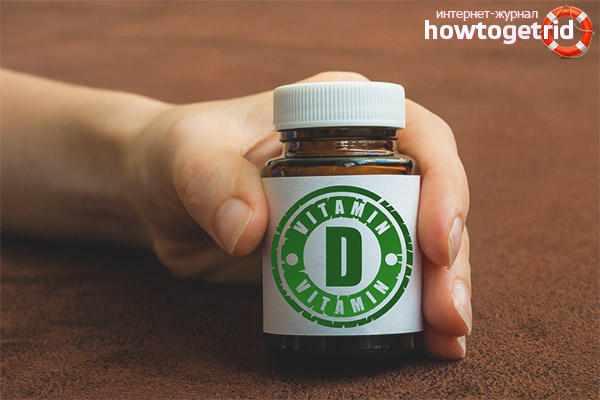
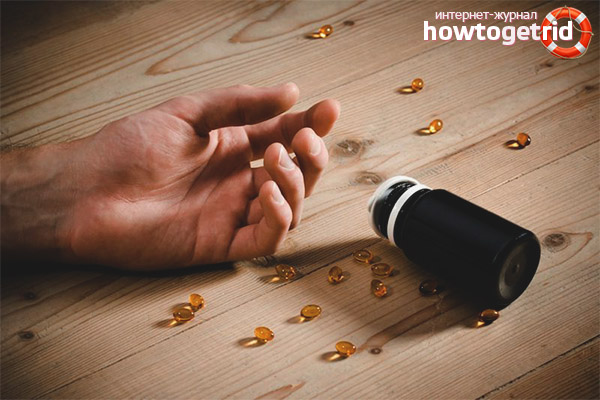
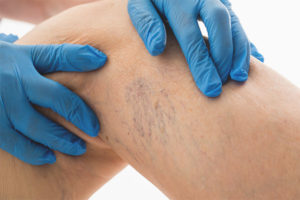

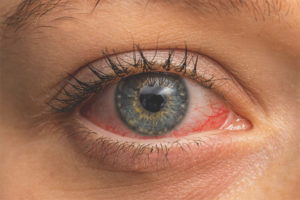

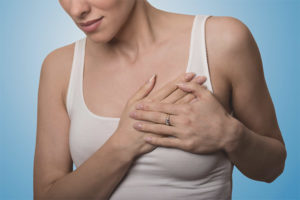
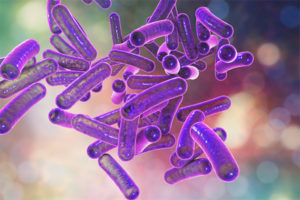


Submit